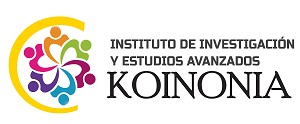Plataforma virtual educativa para los procesos de educación vial en Ecuador
Resumen
La presente investigación que tiene como objetivo general: “Implementar una plataforma virtual educativa que permita el mejoramiento de la logística utilizada para la generación de una cultura de educación vial en la Región Norte del Ecuador”. Los procesos de educación virtual complementan de manera excelente a los procesos de educación presencial, también debe señalarse que con la educación virtual se puede llegar a lugares más distantes, también se puede llegar a un mayor número de personas y con una reducción apreciable de los gastos por transporte y personal, es decir la educación virtual evita muchos problemas de logística. Al terminar el desarrollo del aula virtual, se espera contribuir al aprendizaje que realiza el Departamento de Educación y Seguridad Vial de la Empresa Pública de Movilidad MOVIDELNOR EP., con base en Ibarra, además de mejorar la cultura de seguridad vial y la reducción de la siniestralidad, esto a largo plazo.
Descargas
Citas
Esbester M. (2015). Promoting road safety. Technology and culture, 56(2), 493–497. https://doi.org/10.1353/tech.2015.0075
Lawati, M., Dennis, S., Short, S. D., & Abdulhadi, N. N. (2018). Patient safety and safety culture in primary health care: a systematic review. BMC family practice, 19(1), 104. https://doi.org/10.1186/s12875-018-0793-7
Lee, J., Huang, H., Wang, J., & Quddus, M. (2022). Road safety under the environment of intelligent connected vehicles. Accident; analysis and prevention, 170, 106645. https://doi.org/10.1016/j.aap.2022.106645
Pacheco-Cortés, C. (2017). Educación vial en la era digital: cultura vial y educación permanente [Traffic Security and Lifelong Learning in the Digital Era]. Diálogos sobre educación. Temas actuales en investigación educativa, 8(15), 00011
Stevenson, M., & Bhalla, K. (2020). Global road safety: a well-travelled road? International journal of injury control and safety promotion, 27(1), 1–2. https://doi.org/10.1080/17457300.2020.1713439
The Lancet Global Health (2019). Speaking up for global road safety. The Lancet. Global health, 7(6), e681. https://doi.org/10.1016/S2214-109X(19)30192-5
Tiwari G. (2021). International collaborations in road safety research. International journal of injury control and safety promotion, 28(4), 401–402. https://doi.org/10.1080/17457300.2021.2000345
Vecino-Ortiz, A. I., & Hyder, A. A. (2015). Road Safety Effects of Bus Rapid Transit (BRT) Systems: a Call for Evidence. Journal of urban health: bulletin of the New York Academy of Medicine, 92(5), 940–946. https://doi.org/10.1007/s11524-015-9975-y
Wismans, J., Skogsmo, I., Nilsson-Ehle, A., Lie, A., Thynell, M., & Lindberg, G. (2016). Commentary: Status of road safety in Asia. Traffic injury prevention, 17(3), 217–225. https://doi.org/10.1080/15389588.2015.1066498
Derechos de autor 2022 Vladimir Lautaro Hanalata-Valle, Ariel José Romero-Fernández, Gustavo Eduardo Fernández-Villacrés, Marco Vinicio Quintana-Cifuentes

Esta obra está bajo licencia internacional Creative Commons Reconocimiento-NoComercial-CompartirIgual 4.0.
CC BY-NC-SA : Esta licencia permite a los reutilizadores distribuir, remezclar, adaptar y construir sobre el material en cualquier medio o formato solo con fines no comerciales, y solo siempre y cuando se dé la atribución al creador. Si remezcla, adapta o construye sobre el material, debe licenciar el material modificado bajo términos idénticos.
OAI-PMH URL: https://cienciamatriarevista.org.ve/index.php/cm/oai














